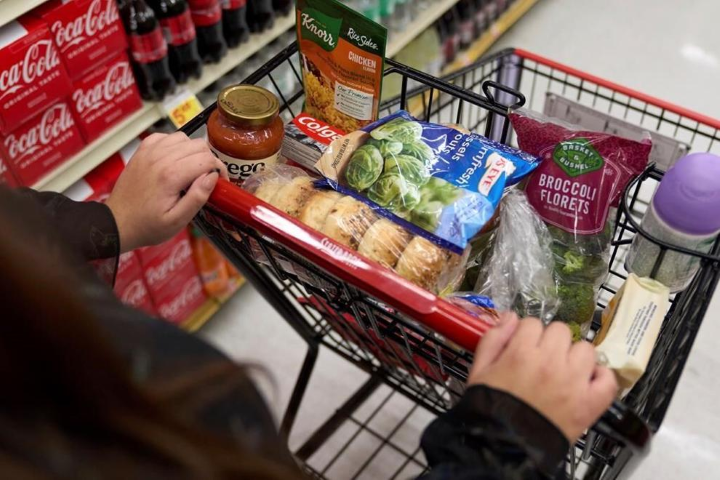
File - A food shopper pushes a cart of groceries at a supermarket in Bellflower, Calif., on Monday, Feb. 13, 2023. Student and legal advocacy groups are petitioning the U.S. Department of Agriculture to lift the interview requirement for Supplemental Nutrition Assistance Program (SNAP) applicants to receive food aid. SNAP helps low-income families supplement their budgets so they can buy groceries, snacks, and non-alcoholic beverages. An estimated 42 million Americans currently receive the benefits at an average of $212 per person or $401 per
Student and legal advocacy groups are urging the U.S. Department of Agriculture to eliminate the interview requirement for Supplemental Nutrition Assistance Program (SNAP) applicants in order to streamline access to food aid.
Organizations such as the National Student Legal Defense Network, the Center for Law and Social Policy, and the California Student Aid Commission argue that the current interview requirement is burdensome, hindering eligible individuals from receiving crucial food assistance. The U.S. Department of Agriculture is currently reviewing this proposal, according to a spokesperson.
The SNAP program assists low-income families in supplementing their budgets to purchase groceries, snacks, and non-alcoholic beverages. With approximately 42 million Americans benefiting from this program, receiving an average of $212 per person or $401 per household monthly, it plays a vital role in supporting vulnerable populations.
Under the existing system, within 30 days of applying for SNAP, applicants must undergo an initial certification interview, either by phone or in person. Expedited interviews within a seven-day window are available for those in urgent need and meeting specific income criteria. The interview requirement has been criticized for being a barrier to access, particularly for working families and college applicants, leading to missed opportunities for eligible applicants.
Aviana Kimani, a 24-year-old student, shared her experience of leaving the SNAP program due to challenges in scheduling mandated re-certification interviews. The inflexible scheduling, coupled with work and school obligations, made the process difficult, contributing to her decision to discontinue benefits.
The current interview requirement dates back to the establishment of SNAP in 1978, inheriting the practice from the previous food stamp program. While the USDA argued that interviews help both the agency and households understand each other better, organizations advocating for the change emphasize that the interview mandate is not mandated by the federal statute governing the SNAP program.
During the pandemic, interview and other requirements were temporarily eased, demonstrating that changes could be made without compromising the program's integrity. A recent report from the Center for Budget and Policy Priorities acknowledged the importance of interviews in gathering accurate information but highlighted their labor-intensive nature and potential to cause delays in approval.
Advocates argue that the pandemic's policy changes, including automatic re-certification to continue benefits without in-person appointments, demonstrated the feasibility of a more accessible system. As the USDA reviews the proposal, the focus remains on ensuring that eligible individuals, including students and working families, can access SNAP benefits without unnecessary bureaucratic obstacles.















